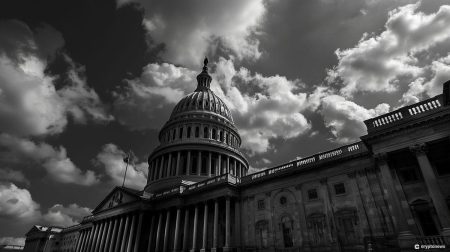Crypto advocacy groups have recently stepped in to support Roman Storm, the developer of Tornado Cash, in his ongoing legal battle. Storm was arrested in August and charged with three counts related to his role as a co-founder of the Ethereum privacy protocol. He has filed a motion to drop the charges against him, arguing that the government’s understanding of Tornado Cash’s service and blockchain technology is flawed. Three prominent pro-crypto organizations, including Coin Center, the Blockchain Association, and the DeFi Education Fund, have filed amicus briefs in support of Storm, making similar arguments against the government’s indictment.
The government’s indictment alleges that Storm and his co-founder engaged in the business of transferring funds on behalf of the public without registering Tornado Cash with FinCEN, leading to the charge of conspiracy to operate an unlicensed money transmitting business. The Blockchain Association’s brief argues that intermediaries can only be liable as money transmitters if they exercise total independent control over the assets, which is not the case with Tornado Cash. The brief warns that if the government’s interpretation stands, it would essentially ban anonymizing protocols and make compliance with the Bank Secrecy Act impossible for developers.
Coin Center’s brief focuses on arguments against the count of conspiracy to violate the International Economic Emergency Powers Act (IEEPA) and provides a First Amendment defense. It argues that decisions regarding Tornado Cash’s functionality and release were made long before any knowledge of alleged sanctions violations, drawing an analogy to developers of the Linux operating system. The DeFi Education Fund’s brief also challenges the charges and presents a concerning scenario if Storm were to lose the case, as it could grant unlimited power to prosecute software developers for code used by third parties for nefarious purposes.
The lack of a limiting principle could expose developers of open-source software to criminal liability for activities beyond their control years or even decades later. At present, government prosecutors have not responded to Storm’s motion to dismiss the charges. The advocacy groups are pushing back against the government’s interpretation of the law, arguing that it could have far-reaching implications for developers of privacy protocols and open-source software. They are urging the courts to consider the broader implications of the case and ensure that developers are not held liable for activities beyond their control. The outcome of this legal battle could have significant repercussions for the crypto industry and the development of privacy-enhancing technologies.















